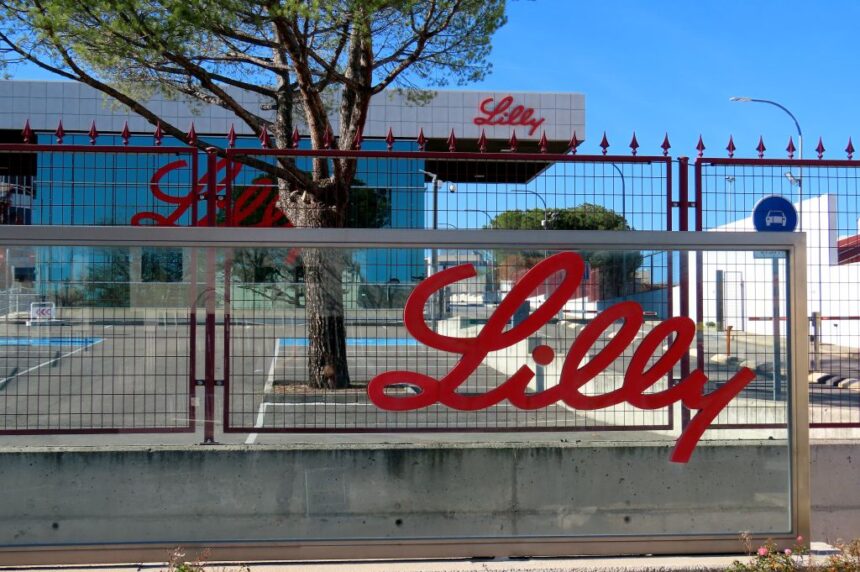The Food and Drug Administration’s decision to greenlight Eli Lilly’s tirzepatide for treating obesity on Wednesday was both an expected but impactful announcement.
Originally known as Mounjaro for treating type 2 diabetes, tirzepatide will now be known as Zepbound in the treatment of obesity.
Widely used off-label for weight loss, Lilly’s GLP-1 drug now has regulatory approval for an expanded indication, which is likely to have a profound effect on the company’s operations and marketing going forward.
According to Lilly’s recently released earnings report, the pharma giant recorded a quarterly revenue increase of 37% thanks to the success of Verzenio, Jardiance and Mounjaro (tirzepatide), its treatment for diabetes and obesity. Mounjaro generated more than $1.4 billion in revenue during the period.
The news comes at a critical time, too. Over the past year, weight loss drugs from Lilly and rival Novo Nordisk have experienced an unparalleled level of demand that shows little signs of letting up.
Similar to Lilly, Novo enjoyed an exceptionally strong quarter thanks to its weight-loss drugs, with the sale of GLP-1 diabetes drugs rising 49% while obesity care products grew 174%. Currently, Novo has a higher market capitalization than the gross domestic product of its home country of Denmark.
As 2024 nears, drugmakers are bolstering their weight loss drug supplies and making strategic moves to maximize their market position.
Already hampered by shortages for its weight loss drugs, Novo has enlisted three contract manufacturers to fill its Wegovy injection pens in order to keep pace with record-high demand.
Additionally, the Zepbound decision was announced hours before AstraZeneca unveiled that it bought the rights to a once-daily oral GLP-1 drug candidate from Eccogene for $185 million upfront.
This jockeying is likely to have major ramifications for the pharma industry both in the short- and long-term.
Bill Coyle, global head of Biopharma at consulting and technology firm ZS, said the most significant impact will be providing consumers more options and greater access to GLP-1 drugs.
“All of the results that have been coming in over the past months from Novo and Lilly show that there’s incredible demand in this category. I think more entrances are net positive,” he said.
To that end, Lilly also committed in a statement that it would break down the barriers to accessing obesity treatments by working with other healthcare stakeholders and government agencies to ensure those who need Zepbound can access it.
Still, while Zepbound is expected to be available by the end of the year it comes with a list price of $1,059.87. Though Lilly argued that this price point is 20% lower than Novo’s semaglutide 2.4 mg injection for weight loss, many industry observers have pointed out that even when these weight-loss drugs are in supply, the cost can be prohibitive.
As it relates to marketing Zepbound, Coyle said that the approved label expansion should provide Lilly more opportunities to advertise the product and engage with both prescribers and consumers about the drug to gauge the most appropriate use of it.
Given the prominence with which Mounjaro has already achieved in popular culture, he suggested that Lilly should be able to raise brand awareness for Zepbound relatively easily. However, Coyle added that the company will need to prioritize educating potential patients on the well-documented side effects of these drugs as access broadens.
The large market size, which accounts for around 100 million Americans and stretches into the billions worldwide, is something that is noteworthy in its own right, Coyle said.
“Considering the sheer volume of people that can benefit from these drugs, which will hopefully put them on a positive health trajectory as it relates to diabetes and cardiovascular disease, it’s profound the market opportunity,” he said.
Going forward, he expects more entrants into the market and development in terms of not only the offerings available, but also consumer preferences, like taking a daily oral pill over a weekly injection.
Despite the progress made with the FDA, Lilly is not out of the woods yet as it awaits similar approvals across the pond.
The company said Thursday that it has not yet gained approval in Britain for the injection pen it plans to use for Mounjaro, even though the drug itself was cleared for weight loss by the British regulator earlier this week.
For a December 2023 update on Zepbound, click here.
For a December 2023 update on Lilly and the obesity drug market, click here.







